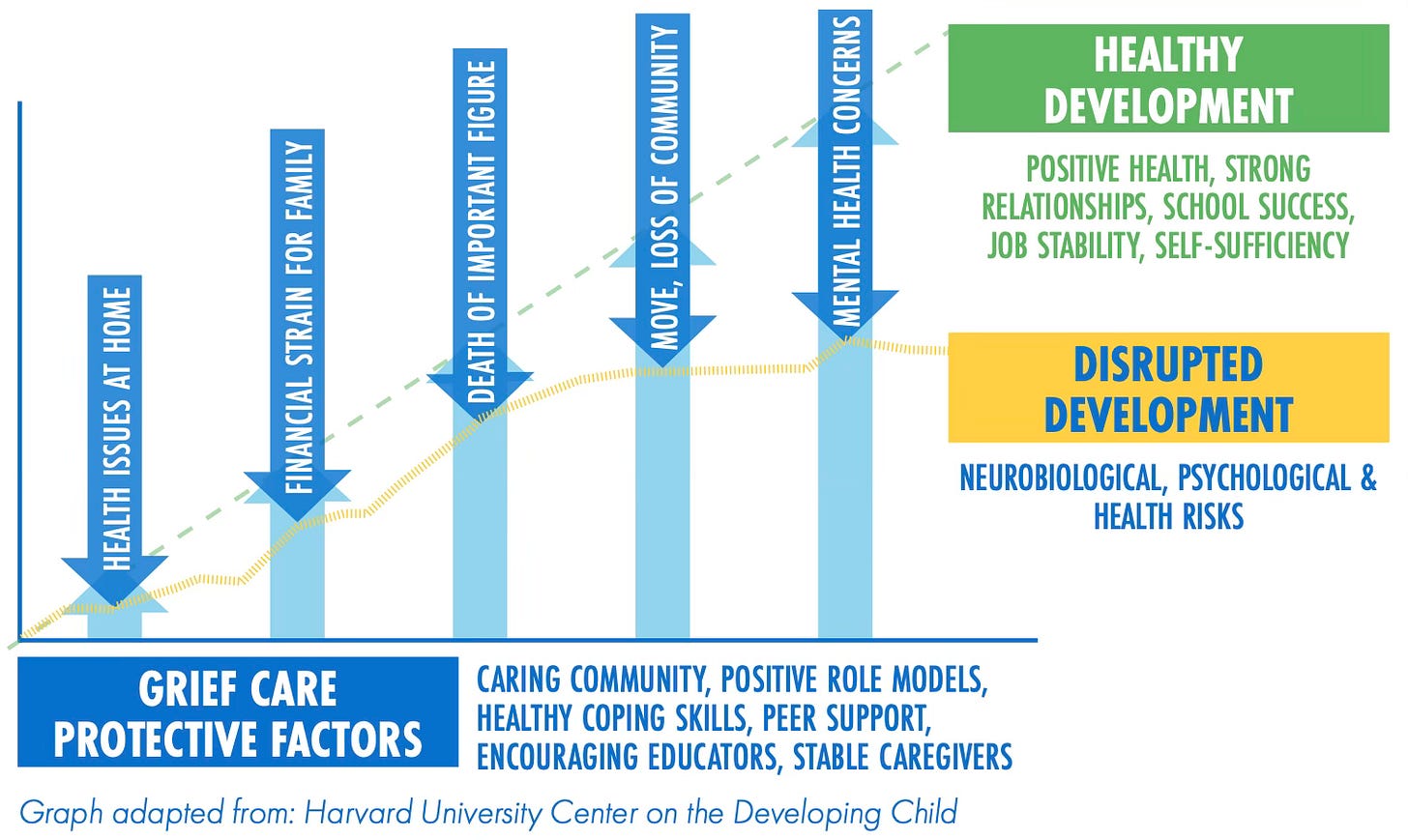The Ripple Effect: How Supporting Today's Widows Changes Tomorrow's Families
Every widow who thrives today teaches a daughter, granddaughter, or community that healing is possible
When Linda's financial advisor takes extra time to explain investment options without condescension, he's not just helping one 64-year-old widow make better decisions about her retirement. He's modeling respectful treatment that Linda will remember when her daughter seeks financial advice. He's contributing to a world where women's financial competence is assumed, not questioned.
When the grief support group helps Patricia rediscover her professional identity at 58, they're not just helping one woman heal. They're showing Patricia's teenage granddaughter that reinvention is possible at any age, that women don't have expiration dates on their dreams or capabilities.
When Marcus takes time to truly listen to his newly widowed neighbor Ellen's concerns about home repairs instead of immediately trying to "fix" everything for her, he's not just being a good neighbor. He's demonstrating to his own children that women deserve to be heard and supported, not rescued or managed.
Every act of genuine support for today's widows is an investment in tomorrow's families.
*CHILDHOOD BEREAVEMENT: THE COST OF INACTION Report
The Children Are Watching
The most profound impact of how we treat today's widows isn't on the widows themselves—it's on the children and young adults observing these interactions.
Teenage Maya watches her grandmother Sharon navigate her first tax season alone after Grandpa's death. When Sharon's son (Maya's uncle) insists on "handling everything" for her, Maya notices her grandmother's frustrated silence. When Sharon's daughter helps her learn the tax software instead, Maya sees her grandmother's growing confidence. Maya is learning two different models of support—one that infantilizes, one that empowers.
College student Alex observes how his community responds when Professor Williams returns to teaching after her husband's death. Some colleagues whisper about whether she's "ready" or "stable enough." Others welcome her back with genuine enthusiasm for her expertise. Alex is learning that grief doesn't diminish competence, and that assumptions about women's emotional stability often say more about the observers than the observed.
Young mother Destiny watches her neighbor navigate widowhood at 35 with two small children. When some community members focus on finding the widow "a good man to help," while others help her access job training and childcare resources, Destiny sees two different definitions of what women need. One teaches her that women require male rescue; the other shows her that women need practical support to use their existing capabilities.
These observations are shaping the next generation's understanding of what women can do, what support looks like, and what partnerships should be.
The Professional Transformation
When we support widows in professional settings, we're not just helping individuals—we're changing entire industries.
Healthcare: When Dr. Peterson explains medical decisions to widow Margaret as the intelligent adult she is, rather than speaking primarily to her adult son, he's modeling patient respect that will influence medical students, nurses, and other staff. Healthcare slowly becomes more equitable for all women.
Financial Services: When retirement planner Janet spends time teaching widow Rose about her investment options rather than suggesting she "find someone to help," she's establishing new standards in her firm. Other advisors observe that treating women as capable clients leads to better outcomes and stronger professional relationships.
Legal System: When estate attorney Williams ensures widow Grace understands every document she's signing rather than rushing through paperwork, he's setting precedents for how his junior associates treat women clients. Legal practices gradually shift toward genuine informed consent rather than paternalistic guidance.
The Economic Ripple Effect
Supporting widows to become financially confident and independent creates economic benefits that extend far beyond individual families.
Consumer Power: Widows control significant household wealth—often for the first time in their lives. When they're supported to make informed financial decisions rather than being taken advantage of, they become more sophisticated consumers and investors. This raises standards across financial services industries.
Workplace Dynamics: Widows who successfully re-enter or advance in the workforce demonstrate older women's value to employers. This shifts hiring practices and workplace cultures, benefiting all women over 50.
Entrepreneurship: Many widows start businesses or pursue delayed dreams. When communities support these ventures rather than viewing them skeptically, they're normalizing women's entrepreneurial capabilities at any life stage.
Teaching 3 New Models of Grief Support
How we support widows today is creating templates for how future generations will support each other through loss.
Partnership Grief vs. Dependency Grief: When we help widows access their existing strengths rather than taking over their responsibilities, we're modeling a new approach to grief support. Future families learn that love means empowerment, not replacement.
Keep reading with a 7-day free trial
Subscribe to Widow Life® to keep reading this post and get 7 days of free access to the full post archives.





